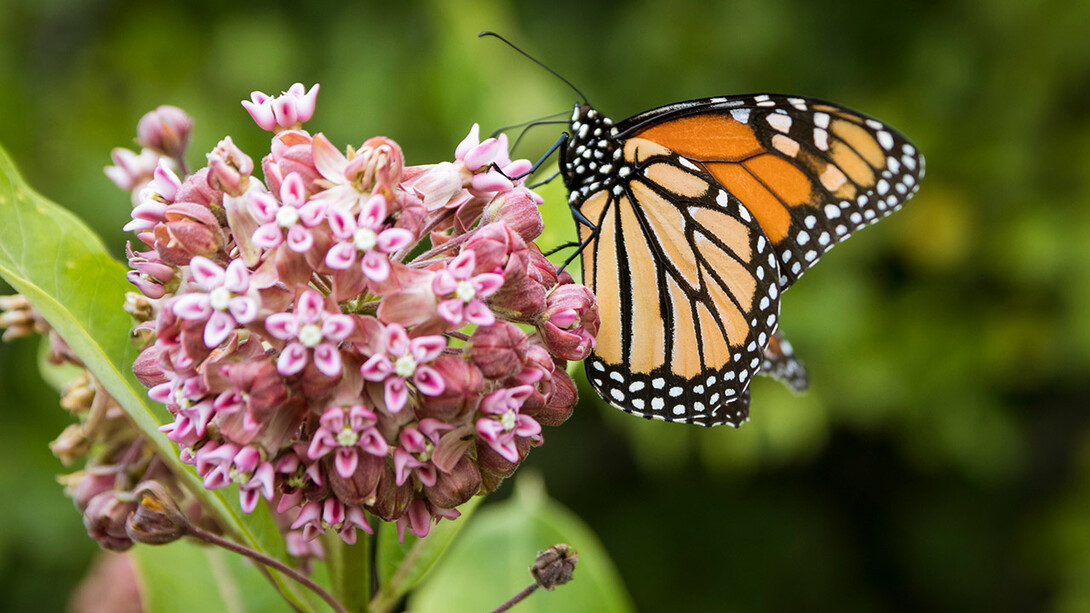
A University of Nebraska–Lincoln project to help students grow milkweed in the classroom and learn about the importance of pollinators received a $19,259 grant from the Nebraska Environmental Trust.
The program would fund at least 45 schools in Nebraska in growing milkweed plants in the classroom, educate a minimum of 1,125 students about the importance of pollinators and pollinator habitat, and establish a minimum of 2,000 milkweed stems throughout the state.
“More importantly, this proposal aims to motivate participants to play an active role in the development of pollinator habitat and the advocacy of sound conservation practices that impact soil, water, air and wildlife,” said Douglas Golick, associate professor of entomology and project lead.
Pheasants Forever and the Prairie Plains Resource Institute will partner with the university in recruiting schools across the state to participate in the Milkweed in the Classroom program. Classrooms will receive a kit that will include everything needed to grow milkweed plants in the classroom.
The collaborating organizations will provide training to participating schools on how to grow the plants from seed. The university will provide teachers with curriculum that can be used in conjunction with the interactive activity of growing milkweed plants. Lastly, students will plant milkweed plants in their local communities and monitor milkweed plots to evaluate success.
The project is one of 23 Husker projects receiving more than $2.1 million from NET this year. In total, NET awarded 113 grants totaling more than $18 million in 2021.
The Nebraska Legislature created the NET in 1992. Using revenue from the Nebraska Lottery, the trust has provided more than $349 million in grants to more than 2,400 projects across the state. Anyone — citizens, organizations, communities, farmers and businesses — can apply for funding to protect habitat, improve water quality and establish recycling programs in Nebraska. The NET works to preserve, protect and restore the state’s natural resources for future generations.







